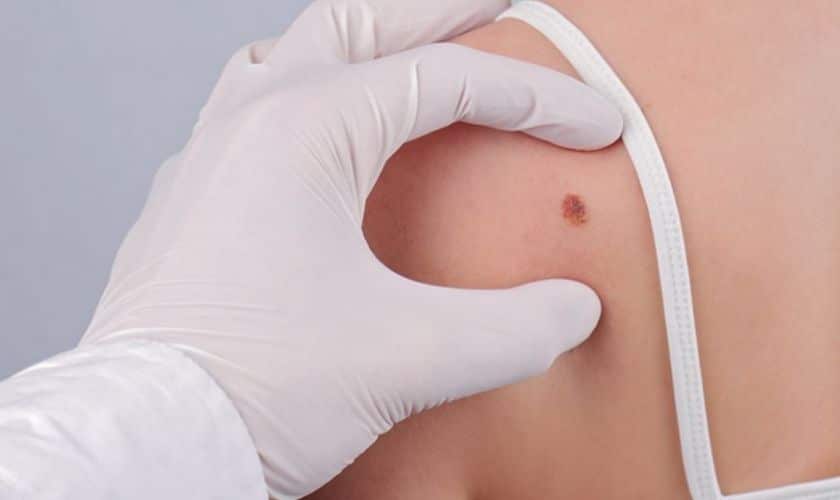Are you dealing with skin cancer and searching for the best treatment option? Look no further! Mohs Surgery could be the answer you’ve been looking for. In this blog post, we will explore what Mohs Surgery is all about, the different types available, and how to care for yourself after undergoing this procedure. So, if you’re curious about whether Mohs Surgery is the right choice for you or a loved one, keep reading to find out more!
What is Mohs Surgery?
What is Mohs Surgery? It’s a highly specialized surgical technique used to treat skin cancer. Unlike traditional surgery, which involves removing the tumor and some surrounding healthy tissue, Mohs Surgery aims to remove cancerous cells while preserving as much healthy tissue as possible. This precision makes it an excellent option for tumors in sensitive areas like the face or genitals.
Here’s how it works: The surgeon removes a layer of tissue from the affected area and examines it under a microscope right away. If any cancer cells are found, another layer is removed and examined. This process continues until no more cancer cells are seen. By targeting only the areas with cancerous cells, Mohs Surgery has one of the highest cure rates among all skin cancer treatments.
The procedure itself is typically performed on an outpatient basis using local anesthesia. Depending on the size and location of your tumor, you may need multiple rounds of surgery over several hours or even days. While this may sound time-consuming, remember that its high success rate makes it well worth it in many cases.
If you’re considering Mohs Surgery, consult with a qualified dermatologist or surgeon who specializes in this technique to determine if you’re a suitable candidate for the procedure based on factors such as your overall health and the type of skin cancer involved.
Remember that every case is unique, so what worked for someone else might not be ideal for you. It’s crucial to have an open conversation with your healthcare provider about risks, benefits, alternatives (like radiation therapy), and expected outcomes before making a decision.
Now that we’ve covered what Mohs Surgery entails let’s delve into discussing the different types available!
Types of Mohs Surgery
There are different types of Mohs surgery that may be recommended depending on the size, location, and complexity of the skin cancer being treated. The three main variations include standard Mohs surgery, slow Mohs surgery, and modified Mohs surgery.
Standard Mohs surgery is the most commonly performed type. It involves removing layers of tissue one at a time and examining them under a microscope until all cancer cells have been eradicated. This technique ensures precise removal while minimizing damage to healthy tissue around the tumor.
Slow Mohs surgery is similar to standard Mohs but takes longer as each layer is carefully examined before proceeding to the next. This method allows for a more thorough examination and can be particularly beneficial for larger or more complex tumors.
Modified Mohs surgery combines elements of both conventional excision and traditional Mohs techniques. It involves removing a central portion of the tumor followed by examining frozen sections in real-time during microscopic analysis.
Each type has its own advantages and considerations, so it’s important to discuss with your dermatologist which approach would be best suited for your specific case.
After Mohs Surgery: Care and Follow-Up
Following Mohs surgery, proper care and follow-up are crucial for optimal healing and preventing complications. Here are some key points to keep in mind during the recovery process.
1. Dressing Changes: Your surgeon will provide detailed instructions on how to change your dressings. It’s important to follow these instructions carefully to reduce the risk of infection and promote proper wound healing.
2. Pain Management: Some discomfort is normal after surgery, but your doctor may prescribe pain medications or recommend over-the-counter options for relief. Be sure to take any prescribed medications as directed and communicate any concerns about pain with your healthcare team.
3. Wound Care: Keeping the surgical site clean is essential for preventing infection. Gently cleanse the area with mild soap and water, pat it dry, and apply any recommended ointments or bandages as instructed by your surgeon.
4. Activity Restrictions: Depending on the location of your surgery, you may need to limit certain activities that could strain or reopen the incision site during healing. Avoid strenuous exercise or lifting heavy objects until cleared by your doctor.
5. Follow-Up Appointments: Regular follow-up appointments allow your healthcare provider to monitor your progress, remove stitches if necessary, assess wound healing, address any concerns you may have, and ensure no signs of recurrence appear.
Remember that every patient’s recovery journey is unique; thus communication with your medical team is vital throughout this process.
Mohs surgery is a highly effective and precise treatment option for individuals with certain types of skin cancer. Its unique approach of removing thin layers of tissue and examining them under a microscope allows for maximum preservation of healthy tissue while ensuring complete removal of cancerous cells. This procedure offers the highest cure rates compared to other surgical methods.
However, it’s important to note that not everyone may be suitable candidates for Mohs surgery. Factors such as the type and stage of skin cancer, location on the body, and overall health need to be considered before making a decision.
If you suspect you have skin cancer or have been diagnosed with it, consult with a board-certified dermatologist who specializes in Mohs surgery. They will evaluate your condition thoroughly and determine if this procedure is the right choice for you.
Remember that aftercare plays an essential role in the success of any surgical procedure. Follow your doctor’s instructions carefully during recovery, keep all follow-up appointments, and protect your skin from further sun damage by wearing sunscreen daily.
Whether or not Mohs surgery is the right choice will depend on individual circumstances. Trusting your healthcare provider’s expertise and seeking their guidance will help you make an informed decision about what treatment option is best suited to ensure optimal outcomes for managing your skin cancer effectively.
Don’t delay; take control of your health today! Consult with a dermatologist specializing in Mohs surgery to discuss whether this innovative technique could be the ideal solution for treating your skin cancer.

